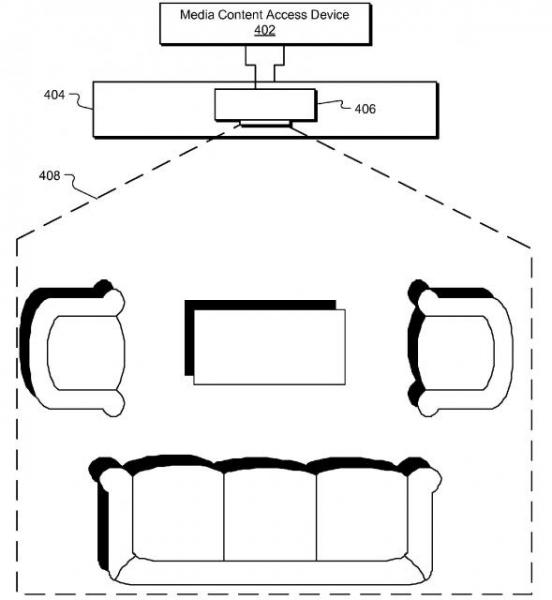Verizon patents targeted advertising that watches TV viewers
Some might see this as an invasion of their privacy, or yet another case of “Big Brother is watching,” but the capability to closely monitor personal conversations and send ads based on overheard keywords could hold enormous marketing potential.
Verizon has filed a patent application for targeting ads to TV viewers based on information collected from infrared cameras, microphones and other devices that would be able to detect the current conduct and mood of the people watching.

Called Verizon Detection Zone, the system would pick up conversations, people, objects and animals that are near a TV. For example, if the system determines that a couple is arguing, a service provider would be able to send an ad for marriage counseling to a TV or mobile device in the room.
Again, the privacy implications of the patent application are huge, and there is no indication that it would pass muster with television viewers or the government. No mention is made of user privacy in the patent application.
If the couple utters words that indicate they are cuddling, they would receive ads for “a romantic getaway vacation, a commercial for a contraceptive, a commercial for flowers” or commercials for romantic movies, Verizon said in the patent application.
Verizon’s application is titled “Methods and Systems for Presenting an Advertisement Associated with an Ambient Action of a User.”
Verizon proposes scanning conversations of viewers that are within a “detection zone” near their TV, including telephone conversations. “If detection facility detects one or more words spoken by a user (e.g., while talking to another user within the same room or on the telephone), advertising facility may utilize the one or more words spoken by the user to search for and/or select an advertisement associated with the one or more words,” Verizon said in the patent application.
Get the TV Tech Newsletter
The professional video industry's #1 source for news, trends and product and tech information. Sign up below.
The company said the sensors could also determine if a viewer is exercising, eating, laughing, singing or playing a musical instrument, and target ads to viewers based on their mood. It also could use sensors to determine what type of pets or inanimate objects are in the room.
“If detection facility detects that a user is playing with a dog, advertising facility may select an advertisement associated with dogs (e.g., a dog food commercial, a flea treatment commercial, etc.),” Verizon wrote.
Several types of sensors could be linked to the targeted advertising system, including 3-D imaging devices, thermographic cameras and microphones, according to the patent application.
Officials at Verizon declined to comment about the patent application, which was filed in May 2011. The U.S. Patent & Trademark Office published it last week.
